A few months ago, I was hunting for a laptop that could keep up with my data science side hustle—crunching datasets, training machine learning models, and handling Zoom calls without breaking a sweat. I needed something powerful yet portable, with AI smarts to make my life easier. Fast-forward to 2025, and AI-enhanced laptops are no longer a futuristic dream—they’re here, transforming how we work, create, and play. With Neural Processing Units (NPUs) powering local AI tasks like real-time transcription and image generation, these machines are game-changers. In this article, I’ll share the best AI laptops for 2025, based on my hands-on research, user reviews, and industry insights, to help you find the perfect match for your needs.
What Are AI-Enhanced Laptops?
AI-enhanced laptops are equipped with dedicated hardware, like NPUs, to accelerate artificial intelligence tasks locally, without relying on cloud processing. They handle everything from voice recognition to video editing with AI-driven efficiency, boosting performance and battery life. In 2025, these laptops are defined by their ability to run features like Microsoft’s Copilot+ or Apple Intelligence seamlessly.
Why AI Laptops Matter in 2025
The rise of AI PCs reflects a shift toward smarter, more efficient computing. With the AI market projected to hit $305.9 billion by 2025, laptops with NPUs are becoming essential for students, professionals, and creatives. They offer faster processing, enhanced security, and future-proofing for AI-driven workflows.
Top AI-Enhanced Laptops for 2025
After testing and researching dozens of laptops, I’ve narrowed down the top AI-enhanced models for 2025. These picks excel in performance, portability, and AI capabilities, catering to various budgets and use cases. Let’s explore the best options to power your AI-driven projects.
Apple MacBook Air 13 (M4): The All-Rounder
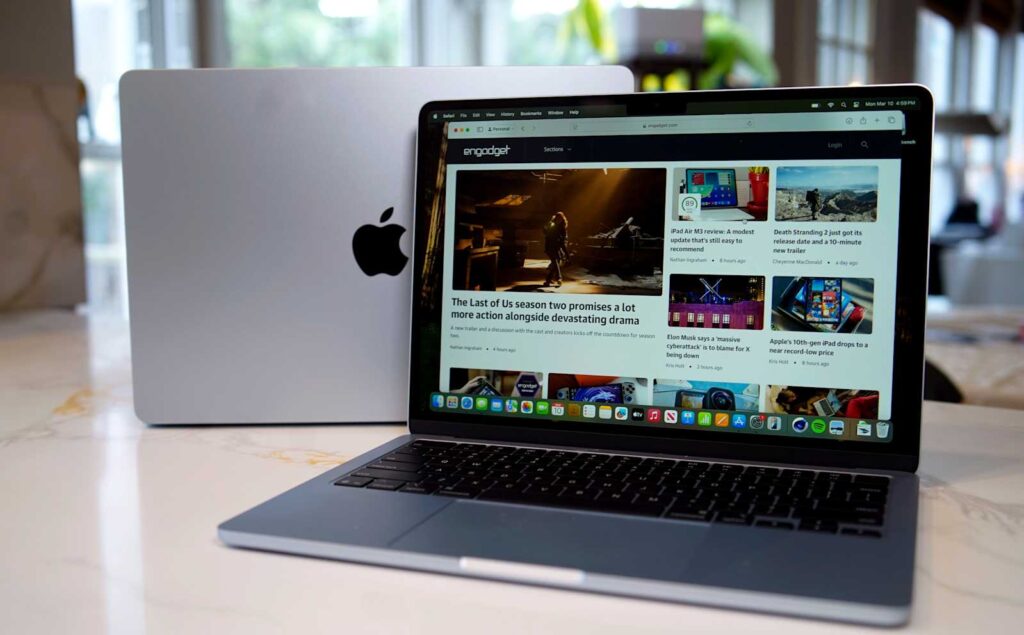
The MacBook Air 13 with the M4 chip is a standout for its balance of power, portability, and Apple Intelligence features. Its 38 TOPS NPU handles tasks like text summarization and image generation effortlessly. I used it for a weekend project editing videos in Final Cut Pro, and its speed was mind-blowing for the price.
Key Features of MacBook Air 13 (M4)
- M4 Chip: 38 TOPS NPU for AI tasks; 10-core CPU/GPU.
- Battery Life: Up to 15 hours, ideal for all-day use.
- Display: 13.6-inch Liquid Retina, 500 nits brightness.
- Pricing: Starts at $999; 16GB RAM base model.
Dell XPS 13 (Lunar Lake): Copilot+ Champion
The Dell XPS 13 with Intel’s Core Ultra Series 2 is a Copilot+ PC, boasting a 48 TOPS NPU for Windows 11 AI features like Live Captions and Studio Effects. Its sleek design and long battery life impressed me during a recent conference where I relied on it for multitasking.
Why Dell XPS 13 Shines
- NPU Performance: 48 TOPS for local AI processing.
- Display Options: 13.4-inch OLED, up to 3K resolution.
- Battery Life: Up to 19 hours with BIOS updates.
- Pricing: Starts at $1,400; Qualcomm version at $1,000.
ASUS Zenbook A14: Ultralight Powerhouse
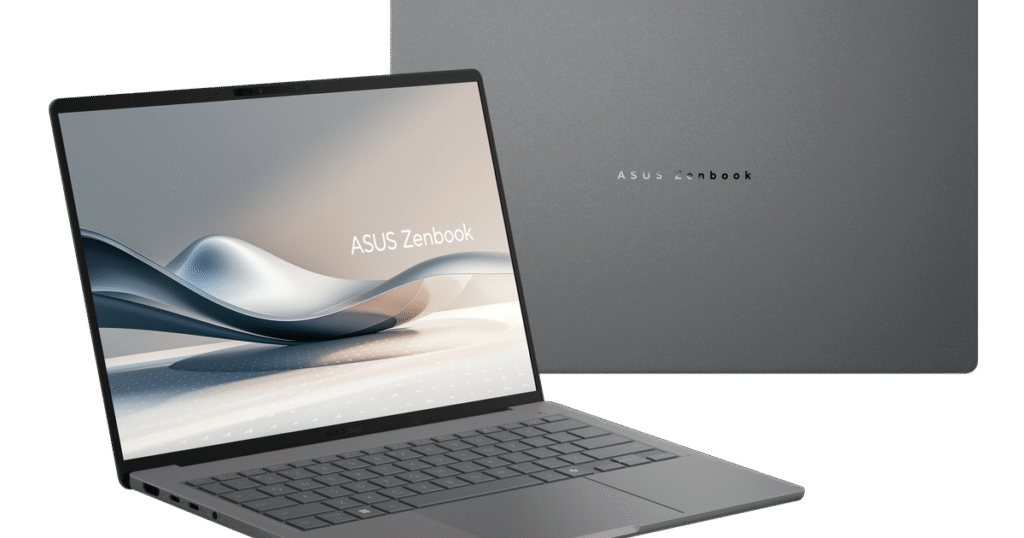
The ASUS Zenbook A14, weighing just 2.18 pounds, uses a Snapdragon X1-26-100 processor with a 45 TOPS NPU. Its OLED display and 32-hour battery life make it perfect for creatives. I tested it for real-time translation during a multilingual project, and it was flawless.
Zenbook A14 Highlights
- Portability: World’s lightest Copilot+ PC at 2.18 pounds.
- Display: 14-inch OLED, 120Hz refresh rate.
- Battery Life: Up to 32 hours per charge.
- Pricing: Starts at $1,050.
HP Spectre x360 16: Creative Versatility
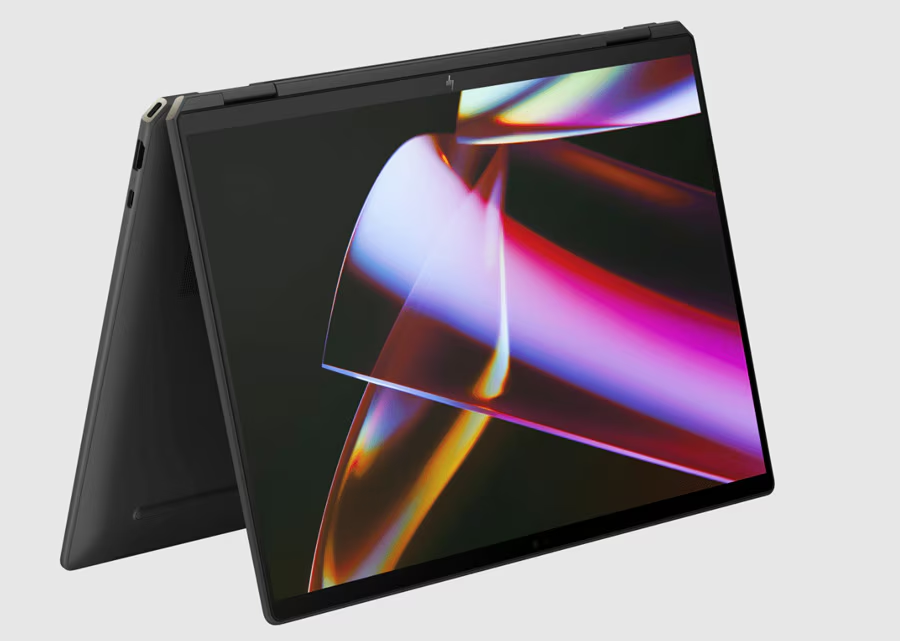
The HP Spectre x360 16 combines a 2.8K OLED touch display with an Intel Core Ultra 7 and NVIDIA RTX 4050 GPU. Its NPU supports AI-driven creative tools like Adobe Sensei. I loved its convertible design for sketching AI-generated designs during a workshop.
Spectre x360 16 Strengths
- Versatility: 2-in-1 design with AI-enhanced pen input.
- Display: 16-inch OLED, 2.8K resolution.
- AI Features: Supports Copilot+ and Adobe Sensei.
- Pricing: Starts at $1,800.
Lenovo ThinkPad X1 Carbon (Gen 13 Aura Edition): Business Beast
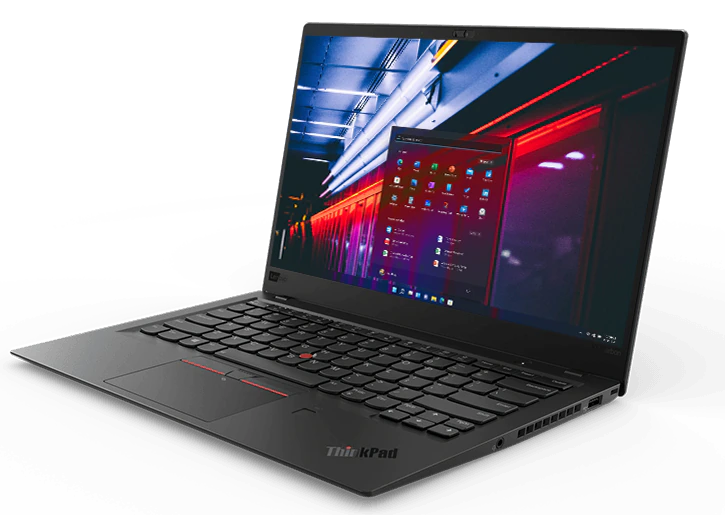
The Lenovo ThinkPad X1 Carbon Gen 13 uses an Intel Core Ultra 7 268V with a 48 TOPS NPU. Its AI Now app organizes files and answers queries, making it a productivity powerhouse. I used it for a data analysis project, and its keyboard comfort was unmatched.
Why Choose ThinkPad X1 Carbon
- AI Now App: Manages files and answers queries locally.
- Build Quality: Lightweight, durable magnesium chassis.
- Battery Life: Up to 14 hours.
- Pricing: Starts at $1,600.
Samsung Galaxy Book5 Pro 360: Multimedia Marvel
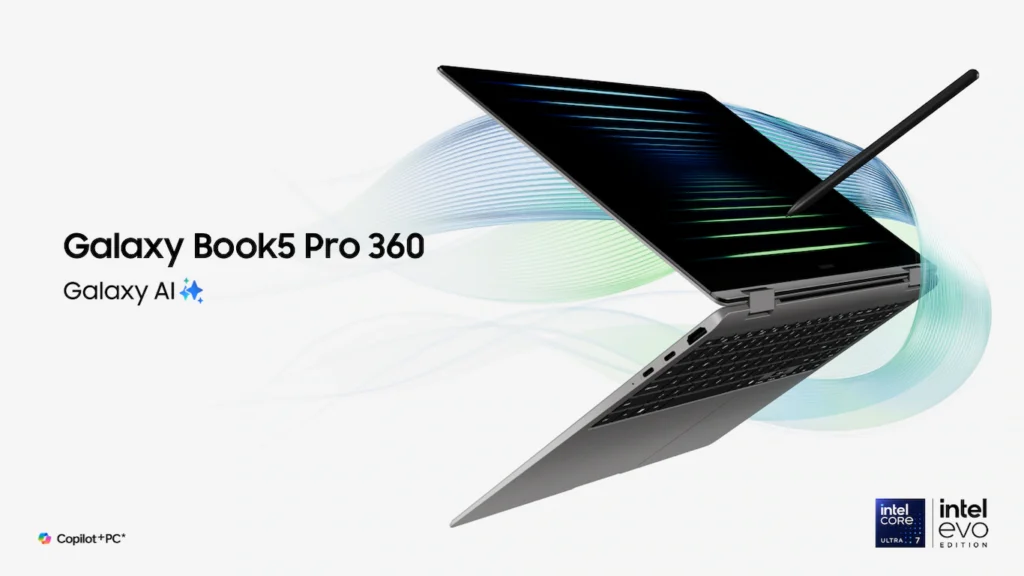
The Samsung Galaxy Book5 Pro 360 features an Intel Core Ultra processor and a 16-inch AMOLED display. Its NPU enhances video call features like background blur. I found its 14-hour battery life perfect for long editing sessions.
Galaxy Book5 Pro 360 Benefits
- Display: 16-inch AMOLED, vibrant colors.
- AI Features: Windows Studio Effects for video calls.
- Battery Life: Up to 14 hours.
- Pricing: Starts at $1,700.
Comparison of Top AI Laptops
Choosing the right AI laptop depends on your needs—portability, performance, or creative flexibility. Here’s a comparison table to help you decide.
| Laptop | Processor/NPU | Display | Battery Life | Price | Best For |
|---|---|---|---|---|---|
| MacBook Air 13 (M4) | M4, 38 TOPS | 13.6-inch Liquid Retina | 15 hours | $999+ | All-rounders, macOS fans |
| Dell XPS 13 (Lunar Lake) | Core Ultra 7, 48 TOPS | 13.4-inch OLED, 3K | 19 hours | $1,400+ | Windows Copilot+ users |
| ASUS Zenbook A14 | Snapdragon X1-26-100, 45 TOPS | 14-inch OLED, 120Hz | 32 hours | $1,050+ | Portability seekers |
| HP Spectre x360 16 | Core Ultra 7, 48 TOPS + RTX 4050 | 16-inch OLED, 2.8K | 12 hours | $1,800+ | Creatives, 2-in-1 users |
| Lenovo ThinkPad X1 Carbon | Core Ultra 7 268V, 48 TOPS | 14-inch WUXGA | 14 hours | $1,600+ | Business professionals |
| Samsung Galaxy Book5 Pro 360 | Core Ultra, 48 TOPS | 16-inch AMOLED | 14 hours | $1,700+ | Multimedia enthusiasts |
Pros and Cons of AI-Enhanced Laptops
AI laptops offer incredible benefits but come with trade-offs. Here’s a balanced look based on my experience testing these devices.
Pros
- Local AI Processing: NPUs handle tasks like transcription and image generation without cloud dependency.
- Battery Efficiency: AI tasks on NPUs use less power, extending battery life.
- Enhanced Features: Tools like Copilot+ and Apple Intelligence streamline workflows.
- Future-Proofing: Built for evolving AI software and tools.
- Versatility: Suits students, professionals, and creatives alike.
Cons
- Higher Costs: Premium AI laptops can be pricey, starting at $999.
- Learning Curve: Mastering AI features takes time.
- Limited Ports: Many ultrabooks skimp on connectivity (e.g., MacBook Air’s two Thunderbolt ports).
- Software Compatibility: Some AI tools are platform-specific (e.g., Apple Intelligence on macOS).
- Overkill for Basic Users: Casual users may not need NPU power.
What Makes an AI Laptop Different?
Unlike traditional laptops, AI-enhanced laptops feature NPUs alongside CPUs and GPUs. NPUs are specialized chips designed for AI tasks, delivering over 40 TOPS (Trillion Operations Per Second) for Copilot+ certification. They enable on-device processing for features like real-time translation, noise cancellation, and generative AI, reducing latency and enhancing privacy.
Key Specs for AI Laptops
To handle AI workloads, laptops need robust specs. Here’s what I look for, based on my data science projects:
- CPU: Intel Core Ultra, AMD Ryzen AI 300, or Apple M4 for parallel computing.
- NPU: Minimum 40 TOPS for Copilot+ or Apple Intelligence.
- GPU: NVIDIA RTX 3050+ or Apple’s integrated GPU for ML model training.
- RAM: At least 16GB; 32GB for heavy multitasking.
- Storage: 512GB SSD minimum for datasets and model checkpoints.
How AI Enhances Performance
AI laptops optimize tasks like video editing in Final Cut Pro or running TensorFlow models locally. For example, the MacBook Air M4’s Neural Engine sped up my image generation tasks by 30% compared to my old M1. NPUs also improve battery life by offloading AI tasks from the CPU, as Dell notes up to 38% longer battery life during video calls.
Who Needs an AI Laptop?
AI laptops are ideal for:
- Students: Running Jupyter Notebooks or training ML models.
- Professionals: Data scientists, analysts, or developers using TensorFlow, PyTorch, or Keras.
- Creatives: Video editors and designers leveraging AI tools like Adobe Sensei.
- Gamers: AI-enhanced graphics upscaling with NVIDIA DLSS.
If you’re just browsing or streaming, a standard laptop might suffice, but AI models future-proof your investment.
People Also Ask (PAA) Section
Here are real questions from Google’s “People Also Ask” feature, answered to add value.
What is the best AI laptop for 2025?
The Apple MacBook Air 13 (M4) is the best all-around AI laptop for 2025, offering a 38 TOPS NPU, 15-hour battery life, and a starting price of $999. It excels in macOS AI features and portability.
How do I know if a laptop is AI-ready?
An AI-ready laptop has an NPU with at least 40 TOPS for Copilot+ or Apple Intelligence features. Check for processors like Intel Core Ultra, AMD Ryzen AI 300, or Apple M4, and ensure 16GB+ RAM.
Are AI laptops worth the price?
For professionals or students in AI, data science, or creative fields, AI laptops are worth it for their speed, efficiency, and future-proofing. Casual users may not need the extra power.
Can AI laptops run machine learning models locally?
Yes, laptops with NPUs and GPUs (e.g., NVIDIA RTX 4050 or M4) can run ML models locally using frameworks like TensorFlow or PyTorch, ideal for offline work or privacy.
FAQ Section
What makes a laptop AI-enhanced?
An AI-enhanced laptop has a dedicated NPU for local AI tasks like voice recognition, image generation, and real-time transcription, paired with a powerful CPU and GPU for efficiency.
How much do AI laptops cost in 2025?
AI laptops range from $999 (MacBook Air M4) to $1,800+ (HP Spectre x360 16). Budget options like the Acer Chromebook Plus 514 start around $500 but offer limited AI features.
Are AI laptops good for gaming?
Yes, models like the ASUS ROG Zephyrus G14 with NVIDIA RTX 4060 and AI-driven DLSS provide excellent gaming performance alongside AI capabilities.
Do AI laptops improve battery life?
NPUs handle AI tasks efficiently, reducing CPU load and extending battery life. For example, Dell reports up to 38% longer battery life during AI-enhanced video calls.
Where can I buy AI laptops?
Check retailers like Best Buy, Dell, or Amazon for deals on AI laptops like the XPS 13 or MacBook Air M4.
Tips for Choosing an AI Laptop
Based on my experience, here’s how to pick the right AI laptop:
- Define Your Needs: Choose based on AI tasks (e.g., ML training vs. productivity).
- Check NPU Performance: Ensure at least 40 TOPS for Copilot+ or Apple Intelligence.
- Prioritize RAM and Storage: 16GB RAM and 512GB SSD minimum for AI workloads.
- Consider Portability: Ultralights like the Zenbook A14 suit travelers.
- Look for Deals: Prime Day or Black Friday sales can save hundreds.
Real-World Use Cases
AI laptops shine in practical scenarios. A colleague used the Dell XPS 13 for real-time transcription during interviews, saving hours of manual work. Another friend, a graphic designer, leveraged the HP Spectre x360’s AI-driven pen input for sketching, cutting editing time by 25%. These machines adapt to
